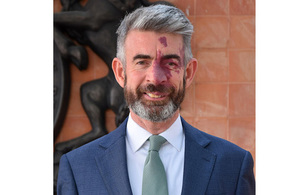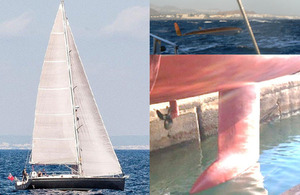If you’re planning a bonfire for the forthcoming Guy Fawkes celebrations, either at home or a larger public event, make sure what you burn is both legal and safe, says the Environment Agency.
Spare a thought too for the wildlife as hedgehogs, toads, frogs, lizards and snakes may have nestled under the bonfire. Build the bonfire as close to the day as possible; as far away as possible from trees, bird boxes and bat boxes; and check for wildlife before lighting the fire.
It is illegal to burn most types of waste and setting fire to treated wood, tyres, plastics, rubber and oil can seriously harm health and pollute the environment. Any material for the bonfire should be clean, non-commercial waste and only small amounts of untreated wood, paper, leaves, and cardboard should be used.
A spokesperson at the Environment Agency, said:
Whilst we want people to enjoy the occasion it is illegal to burn most types of waste and setting fire to treated wood, tyres, plastics, rubber and oil can seriously harm health and pollute the environment.
It may be tempting to burn old bits of furniture, mattresses and household rubbish, but the toxic fumes given off from burning certain types of material can cause pollution and damage people’s health. Even stuffing the Guy with scraps of used foam or old clothing should be avoided.
As well as constructing the bonfire away from trees and bird and bat boxes, we are urging organisers to build them as close to the day as possible, to avoid wildlife moving in. Make sure to check for wildlife before lighting your bonfire or, if possible, see if you can rebuild it in a different area on the day of the bonfire.
If not, light the bonfire from one side only so any wildlife that may hiding can have a better chance of escaping.
Organisers should know where the bonfire material has come from and that it is suitable to be burned. They should also obtain the landowner’s permission beforehand and not build the bonfire close to buildings, trees, bushes or grass, where the fire may spread.
Also, when choosing the site of the bonfire, make sure the fire or smoke from the fire will not affect any houses, buildings or roads, which could become a danger to public safety.
Any waste collected for the bonfire should be stored securely beforehand to prevent any unsuitable waste being illegally dumped on the fire. It is the responsibility of the organiser to know where the bonfire material has come from and that it is suitable to be burned. It is also their responsibility to never leave the fire unattended, and to make sure it is out before leaving the site.
For further information, see the Environment Agency advice on GOV.UK to check the disposal of waste on bonfires is both safe and legal.
If anyone sees any suspicious activities they should contact the Environment Agency incident line on 0800 807060 or report it anonymously to Crimestoppers on 0800 555 111.

